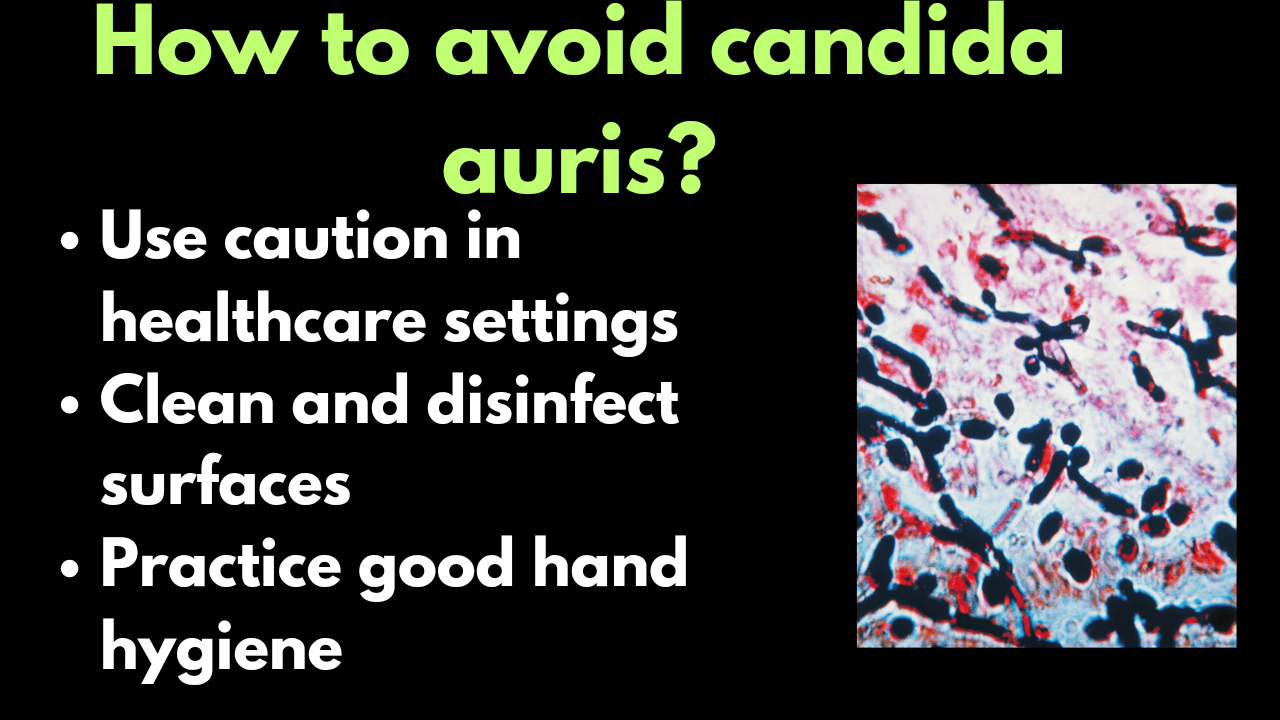Here you will learn “How to avoid candida auris“.
Candida auris is a species of yeast that was first identified in Japan in 2009. Since then, it has spread to healthcare facilities around the world, causing outbreaks and infections in vulnerable populations such as hospital patients and nursing home residents.
Unlike other types of Candida, which typically infect the skin and mucous membranes, Candida auris can cause invasive infections of the bloodstream, brain, and other organs.
Here are some ways to reduce your risk of infection:
- Clean and disinfect surfaces: Candida auris can survive on surfaces for several weeks, so it’s important to regularly clean and disinfect surfaces that are frequently touched.
- Practice good hand hygiene: Wash your hands regularly with soap and water for at least 20 seconds, or use an alcohol-based hand sanitizer if soap and water are not available.
- Use caution in healthcare settings: If you are receiving medical treatment, follow all recommended infection prevention and control measures, including hand hygiene and isolation precautions.
- Take care of your health: Maintain a healthy lifestyle, including a balanced diet, regular exercise, and getting enough sleep. This can help support your immune system and reduce your risk of infection.
- Be aware of the symptoms: If you experience symptoms of a Candida auris infection, such as fever, chills, and body aches, seek medical attention promptly.
How does Candida auris spread?
Candida auris mostly spread by following ways.
- One of the most common ways it spreads is through contact with contaminated surfaces or equipment in healthcare facilities, such as hospital rooms, medical devices, and nursing homes.
- Candida auris can spread is through direct contact with an infected person.
- Candida auris can also be spread through contaminated food or water.
- It can also be spread through the air.
Who is at risk for Candida auris infections?
Following people are most at risk for Candida auris infections.
- Weakened immune systems people.
- Hospital patients
- Nursing home residents
- People with chronic illnesses
- People who have received broad-spectrum antibiotics.
- People who have received broad-spectrum antifungal drugs.
How can Candida auris infections be prevented?
Preventing the spread of Candida auris requires a multi-faceted approach. Healthcare facilities must maintain strict infection control protocols, including proper cleaning and disinfection of equipment and surfaces, and isolation of infected patients.
Additionally, it’s important to use antibiotics and antifungal drugs only when necessary to reduce the risk of drug-resistant infections.
